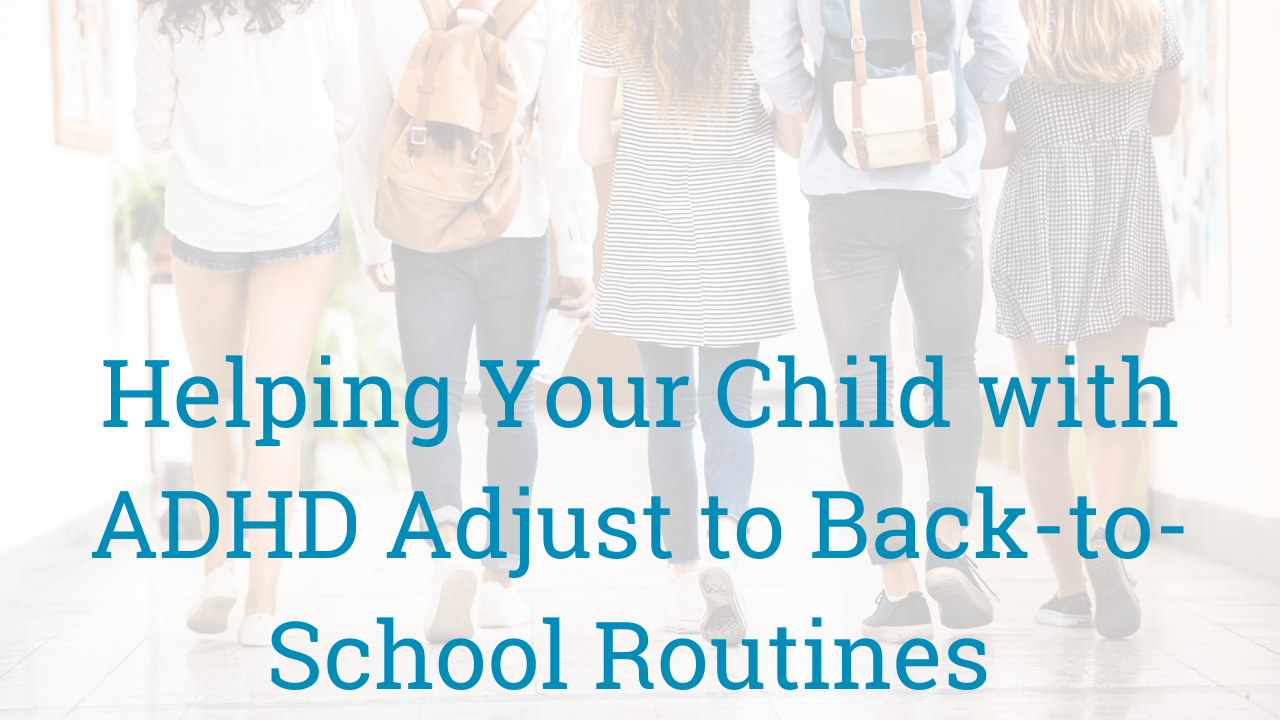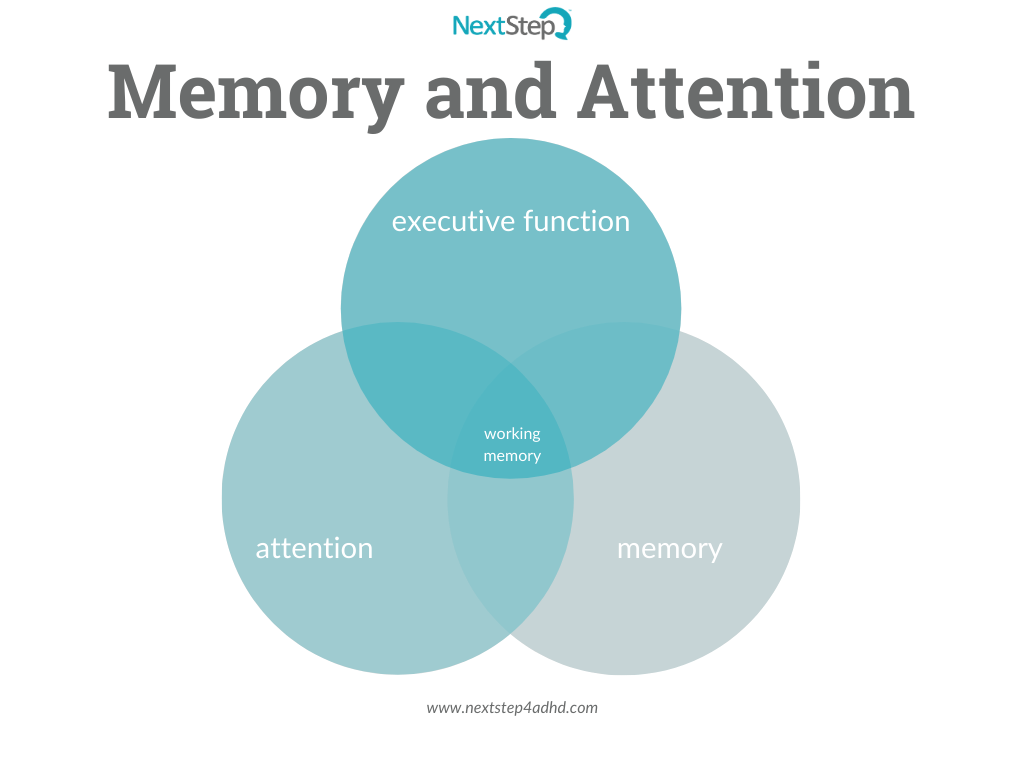
Helping Your Child with ADHD Adjust to Back-to-School Routines
By now, the initial excitement of the new school year has worn off, and some children with ADHD may start struggling to keep up with their routines.
If your child is having a hard time adjusting, it’s not too late to implement strategies that can help them get back on track.
Here’s how you can support your child’s adjustment and ensure they have a successful school year, courtesy of the NextStep4ADHD team.
1. Revisit and Reinforce the Daily Routine
If your child is having trouble sticking to their school routine, revisit and reinforce your daily routine and schedule with them. Consistent morning, after-school, and bedtime routines help create a sense of stability, which can reduce anxiety and make daily transitions smoother.
If mornings are rushed, for example, preparing clothes and school bags the night before can alleviate stress. Make small adjustments as needed to help your child feel more in control of their day.
2. Use Visual Aids to Stay Organized
Visual aids are powerful tools for helping children with ADHD stay organized. A visual schedule or calendar that outlines school activities, homework times, and extracurriculars can help your child anticipate what’s next and reduce overwhelm.
Consider color-coding different subjects or activities to make the schedule more engaging. Daily checklists can also help your child track their tasks and responsibilities and help provide a sense of accomplishment as they complete each one.
3. Set Short-Term Goals
Children with ADHD often respond well to short-term goals that are more manageable and less overwhelming than long-term objectives. Break down larger tasks into smaller goals that your child can achieve daily or weekly.
Celebrate these small successes to keep them motivated. For instance, you could set a goal for your child to complete their homework on time for a week, and reward them with a special treat or privilege.
Learn more about SMART Goals here.
4. Review Homework and Study Habits
If your child is struggling with homework or study sessions, it’s time to review their habits. Ensure they have a quiet, distraction-free space for doing homework, and establish a regular routine that includes short breaks to prevent fatigue. Learn more about setting up a homework space here.
If they find large assignments overwhelming, break them into smaller, more manageable parts, and use a timer to help them stay focused on each task.
5. Know the Warning Signs That ADHD Isn’t Well-Managed
As the school year progresses, it’s important to stay alert to signs that your child’s ADHD may not be well-managed. Even before issues pop up, familiarize yourself with the warning signs.
Some red flags include:
- Difficulty Staying Focused: If your child is consistently unable to concentrate on tasks or follow through with instructions, it may indicate that their ADHD symptoms are interfering with their schoolwork.
- Increased Frustration or Irritability: Frequent emotional outbursts, frustration, or irritability can be signs that your child is feeling overwhelmed and unable to cope with the demands of school.
- Declining Academic Performance: If your child’s grades are dropping or they’re receiving negative feedback from teachers, it might be a sign that their ADHD symptoms are impacting their ability to learn and perform in school.
- Avoidance of Schoolwork: A sudden reluctance to go to school, complete homework, or participate in class could indicate that your child is struggling with more than they can manage.
If you notice these warning signs, it may be time to revisit your child’s ADHD management plan. Consulting with their Next Step 4 ADHD care team can help you make necessary adjustments to their treatment plan, whether it involves medication, therapy, or behavioral interventions.
6. Implement Positive Parenting Techniques
Positive parenting can be a game-changer in helping your child adjust to school routines. Focus on reinforcing good behavior with praise and rewards, setting clear expectations, and being consistent with consequences.
This approach not only helps your child feel supported but also encourages them to stay motivated and follow routines. For more insights on how positive parenting can benefit children with ADHD, visit Dr. Kristi Brisco’s expert advice.
7. Communicate with Teachers Regularly
Your child’s teachers have a close view of their daily behavior and academic performance, making regular communication with them crucial. Stay informed about your child’s progress, and share strategies that work well at home. This collaboration can help create a consistent support system both in the classroom and at home, ensuring that any issues are addressed promptly.
8. Encourage Social Interaction
Social interactions can be particularly challenging for children with ADHD, but they are essential for emotional well-being. Encourage your child to participate in social activities, both inside and outside of school.
If your child is struggling to connect with peers, consider arranging playdates or enrolling them in group activities where they can practice social skills in a structured environment.
Questions? We’re Here for You
Adjusting to back-to-school routines mid-year can be challenging for children with ADHD, but with the right strategies and support, your child can find their rhythm and succeed. By reinforcing routines, setting short-term goals, and staying vigilant for signs that their ADHD may not be well-managed, you can help your child navigate the school year with confidence. Your involvement and encouragement are key to helping your child thrive both academically and socially.
If you’d like to make an appointment, click here to get started.
Learn More
Attention Versus Memory: What’s the Difference?
Inattention Is a Common ADHD Symptom…
- Difficulty paying attention
- Forgetfulness
- Difficulty listening to others
- Problems paying attention with fine details
- Easily distracted
- Poor organizational skills
- Poor time management
Attention Versus Memory
ADHD and Memory Q & A
Below you can read our interview with Dr. Briscoe.
Q: How many people with ADHD struggle with memory?
ADHD typically does not affect long-term memory — one’s ability to recall memories from childhood, adolescence, and previous years.
- Attention
- Working Memory
Q: How does ADHD affect memory?
Q: How does memory work?
- If your boss sits you down to explain a 4-step process to complete a work assignment, the part of your brain responsible for “working memory” holds those four steps in your mind as he explains the details of the assignment.
- As you think through all the details of the assignment, the resources required to complete the processes involved, your working memory should retain the basic 4 steps as the “big picture.”
- Moreover, your working memory should also be working in full force to help you process the details of each step involved.
- As you listen to your boss, you are actively relying on your short-term working memory to recall the “big picture”, understand how the details of each step fit under your bosses’ primary objectives for the project, and analyze all the information as you think through all the various processes involved in completing the project.
You didn’t “forget.” You were not “lazy.” Rather, your working memory is not the same as it is in the average population and it affected your performance.
Q: How can memory be improved?
Your Next Steps
About Dr. Briscoe
 Dr. Brian Briscoe is a board-certified psychiatrist and the medical director of adult programs at Next Step 4 ADHD. Dr. Briscoe was voted a “Top Doctor” by Louisville Magazine. You can make an appointment with Dr. Briscoe here.
Dr. Brian Briscoe is a board-certified psychiatrist and the medical director of adult programs at Next Step 4 ADHD. Dr. Briscoe was voted a “Top Doctor” by Louisville Magazine. You can make an appointment with Dr. Briscoe here.

Tweens, Teens and ADHD
Many children diagnosed with ADHD in Elementary School who are responding well to treatment may hit a few “bumps” during Middle School and High School.
Tweens, particularly girls, may suddenly stop responding to their medication, or may have symptoms that their dose is too high, even though they have been stable on the same medication and dose for years. This is often due to the hormonal changes occurring at this age, in conjunction with their brain development, which is still ongoing.

Sometimes in middle school, and more often in high school, teens will decide to stop taking their medicine. For a few, this is successful, especially if they have ADHD coaching to help them develop organizational skills and other tools to keep them on task. More often, however, the teen’s performance will decline, or they will start getting in trouble more often.
Untreated or undertreated ADHD in teens can be very detrimental, as it has been shown to lead to early experimentation with illicit drugs and/or alcohol (“self-medicating”), higher risk of teen pregnancy (for teen or their partner), and higher risk of run-ins with the law (i.e. speeding tickets, drunk driving).
Our physicians and counselors will work with you and your tween or teen to help navigate this transitional period, provide appropriate treatment and support that engages your youth in their own care, and provide additional resources for ADHD coaching and other behavioral interventions to help them succeed now, and as they leave for college and young adult life.
Contact our team via this form, or simply call our office at (502) 907-5908.
Learn More
